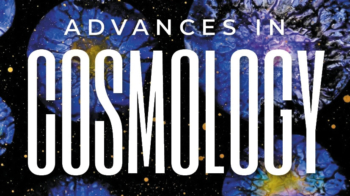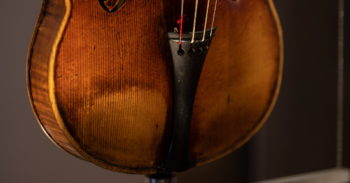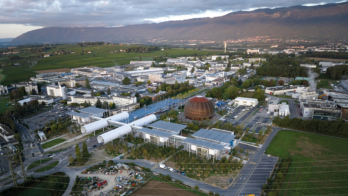This brief excerpt from the foreword of a new book of lectures in theoretical physics by Misha Shifman gives a penetrating insight into the traditions of Russian physics and the life of a theoretical physicist under the Soviet regime.
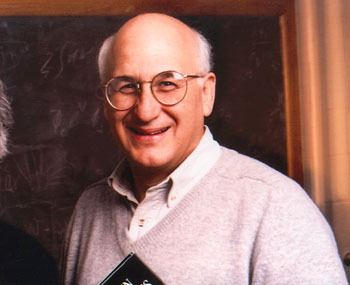
For about twenty years, I was a member of the theory group at the Institute of Theoretical and Experimental Physics, Moscow (ITEP). The ITEP was more than an institute, it was our refuge where the insanity of the surrounding reality was, if not eliminated, reduced to a bearable level.
Doing physics there was something which gave a meaning to our lives, making it interesting and even happy. Our theory group was like a large family. As in any big family, of course, this did not mean that everybody loved everybody else, but we knew that we had to stay together and rely on each other, no matter what, in order to survive and to be able to continue doing physics. This was considered by our teachers to be the most important thing, and this message was always being conveyed to young people joining the group. We had a wonderful feeling of stability.
Rules of survival
The rules of survival were quite strict. First, seminars – the famous Russian-style seminars. The primary goal of the speaker was to explain the results, not merely to advertise them. And if the results were nontrivial, or questionable, or just unclear, this would surface in the course of the seminar, and the standard two hours were not enough. Then the seminar could last for three or even four hours, until either everything was clear or complete exhaustion, whichever came first. I remember one seminar in Leningrad in 1979, when Gribov was still there, which started at eleven in the morning. A lunch break was announced from two to three, and the seminar continued until seven in the evening.
In ITEP we had three, sometimes more, theoretical seminars a week. The leaders and the secretaries of the seminars were supposed to find exciting topics, either by recruiting ITEP or other “domestic” authors, or, often, by picking up a paper or a preprint from elsewhere and asking somebody to report the work to the general audience. This was considered a moral obligation.
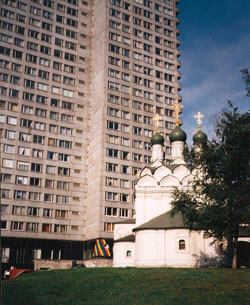
The tradition dated back to when Pomeranchuk was the head of the group, and its isolation had been even more severe. In those days there were no preprints, and getting fresh issues of Physical Review or Nuclear Physics was not taken for granted. When I, as a student, joined the group a few years after Pomeranchuk died, I was taken to the Pomeranchuk memorial library, his former office, where a collection of his books and journals was kept.
Every paper in every issue was marked with a minus or a plus sign, by “Chuk’s” hand. If there was a plus, there would also be the name of a student who had been asked to give a talk for everyone’s benefit. Before the scheduled day of the seminar, Pomeranchuk would summon the speaker to his office to assess whether the subject had been worked out sufficiently and the speaker was “ripe enough” to face the audience and their bloodthirsty questions.
Scientific reports of the few chosen to travel abroad were an unquestionable element of the seminar routine. Attendance at an international conference by no means was considered as a personal matter. Rather, these lucky guys were believed to be our ambassadors, and were supposed to represent the whole group. This meant that at a conference, you could be asked to present important results of other members of the group. Moreover, you were supposed to attend as many talks as possible, including those which did not belong to your field, make extensive notes, and, on your return, deliver an exhaustive report of all new developments, interesting questions raised, rumours, etc.
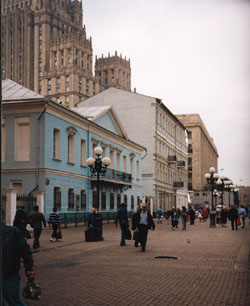
The rumours, as well as nonscientific impressions, were like an exotic dessert. I remember that after a visit to the Netherlands, one colleague mentioned that he was very surprised to see people on the streets smiling. He could not understand why. Then he finally figured it out: “because they were not concerned with building communism.” This remark almost immediately became known, and cost a few years of “inexplicable allergy” to any western exposure.
“Coffee seminars” typically lasted until nine, sometimes much later, for instance, in the stormy days of the 1974 “November revolution”. The few months following the discovery of J/psi were the star days of quantum chromodynamics, and probably the highest emotional peak of the ITEP theory group. Never were the mysteries of physics taken so close to our hearts as then. A spontaneously arranged team of enthusiasts worked practically nonstop. A limit to our discussions was set only by the Moscow metro – those who needed to catch the last train had to leave before 1 a.m. Living in the capital of that empire had its advantages. All intellectual forces tended to cluster in the capital. So, we had a very dynamic group where virtually every direction was represented by several theorists, experts in the given field. If you needed to learn something new, there was an easy way to do it. It was much faster and more efficient than reading through journals or textbooks. You just needed to talk to the right person.
Educating others, sharing your knowledge and expertise with everybody who might be interested, was another rule of survival. Different discussion groups and large collaborations were emerging all the time, creating a strong and positive coherent effect. The brain-storming sessions used to produce, among other results, a lot of noise. So, once you were inside the old mansion occupied by the theorists, it was very easy to figure out which task force was where – you just had to step out into the corridor and listen.
Fashionable physics
There is strong pressure in the world community to stay in the mainstream: to work only on fashionable directions and problems under investigation in dozens of other laboratories. This pressure is especially damaging for young people who have little alternative. Of course, a certain amount of cohesion is needed, but the scale of the phenomenon we are witnessing is unhealthy.
The isolation of the ITEP theory group had a positive side effect. Everybody, including the youngest members, could afford to work on unfashionable problems without publishing a single line for a year or two. On the other hand, it was considered indecent to publish results of dubious novelty, incomplete results, or just papers with too many words per given number of formulae.
Dense papers were the norm. This style, probably perceived by readers as a chain of riddles, is partly explained by tradition, presumably dating back to the Landau times. It was also due to Soviet conditions, where everything was regulated, including the maximal number of pages any given paper could have.



